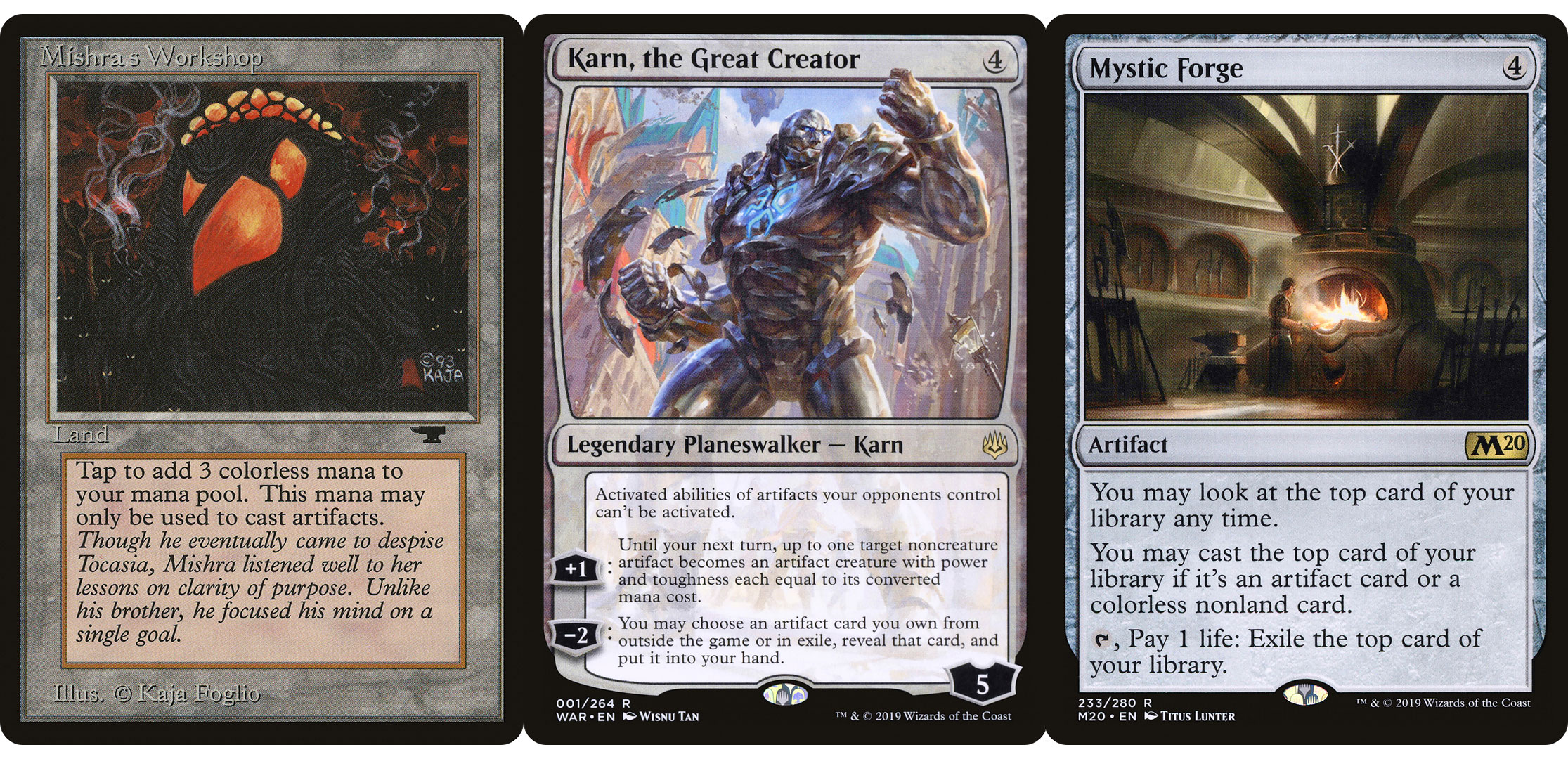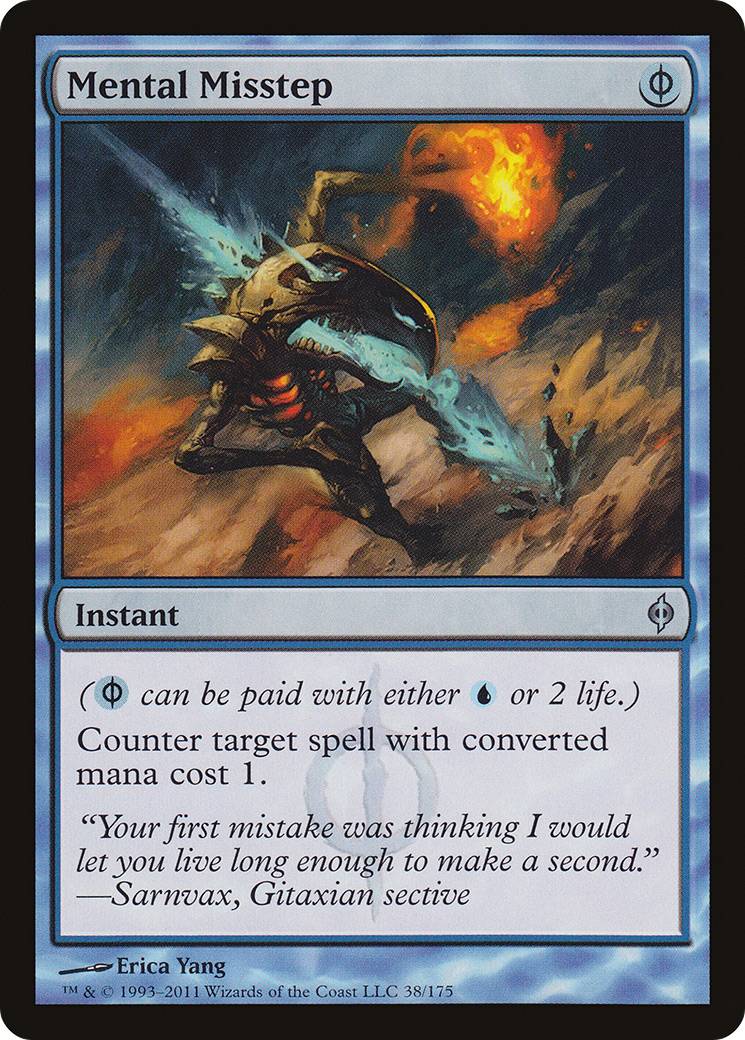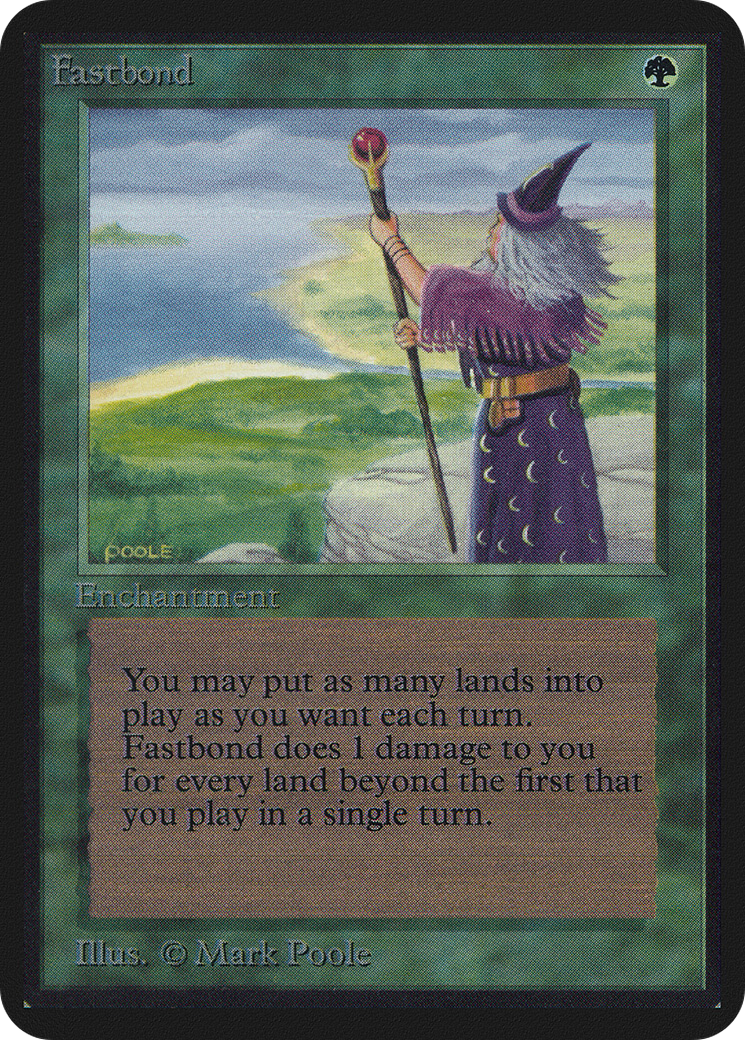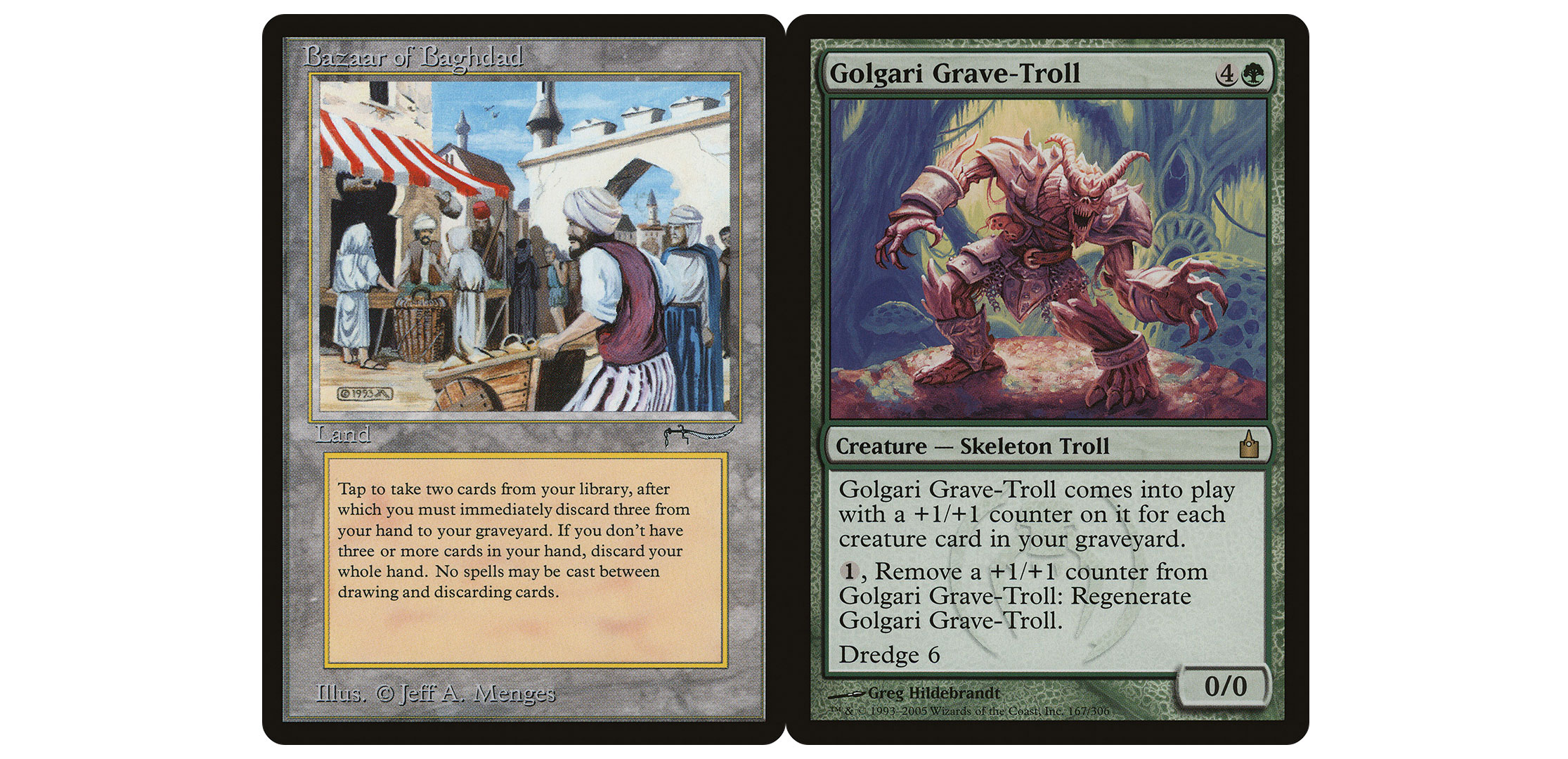Today, Wizards of the Coast made major changes to Magic: the Gathering’s Vintage format by restricted Karn, the Great Creator, Mystic Forge, Mental Misstep, and Golgari Grave-Troll, while unrestricted Fastbond.
Don’t miss our stories on today’s other Banned and Restricted updates: Hogaak, Arisen Necropolis and Faithless Looting were banned in Modern; Stoneforge Mystic was unbanned in Modern; and Rampaging Ferocidon was unbanned in Standard.
Vintage is the most entertaining Magic format. Full stop. Don’t get me wrong, every format of Magic is pretty fun for me, and I’d imagine for most of you, but only in Vintage can you get the kind of outlandish over-the-top card interactions and combos that have become the stuff of legends. Turn 1 infinite mana combo kills? Vintage. A stack so deep with counterspells that you need several judges to help organize it? Vintage. A format where everyone’s deck is worth more than your mortgage? Welcome to Vintage.
For the first time in two years, Vintage was included in Wizards of the Coast’s regular updates to the official banned and restricted announcement. Four cards were added to the list of restrictions while one of the original cards from Magic’s Alpha release was unrestricted for the first time since 1996.

Shops, Karn, and Mystic Forge
First up, let’s talk about Mishra’s Workshop decks. Colloquially referred to as just “Shops,” this is a prison deck that wins with cards like Sphere of Resistance, Null Rod, Trinisphere, and the like. Shops is one of the pillars of Vintage magic. A Shops deck has appeared in the top four of the last three Vintage Championships including taking home the title in 2017.
Karn, the Great Creator, and Mystic Forge, threatened the delicate balance of Vintage that keeps Shops decks from dominating the format entirely. According to the announcement by Wizards, Karn “turbo-charged Shops decks by giving them more early-game lockout potential,” as Karn also provided a tutorable win-condition by grabbing a Mycosynth Lattice from the sideboard and Mystic Forge created almost unbeatable card advantage.
Dredge and Golgari Grave-Troll
Another pillar of Vintage magic is Bazaar of Baghdad, a card that you could probably find in a dollar bin right up until the moment Golgari Grave-Troll was printed. Decks that leverage the Dredge mechanic rely on their ability to fill up the graveyard as quickly as possible and nothing is as quick as Bazaar’s free ability to draw (read: Dredge) three cards each turn. With Grave-Trolls in the graveyard, a player could consistently have a third of their deck available to them by Turn 2.

Phyrexian Mana and Mental Misstep
Mental Misstep, of course, has managed to warp just about every format its appeared in. It was banned from Modern as part of the original banned list when the format was created in August of 2011. One month later it was banned in the now defunct Extended format as well as Legacy. The fact that it lasted eight years in Vintage is a testament to the format’s balance, and Wizards decision to finally ban it shows that the DCI has finally decided that Shops and Dredge need to be reined in a bit.

Fastbond
Last, but hopefully not least, Fastbond is being unrestricted. For those of you who don’t play Vintage or haven’t been around the game for 23 years I’ll give you a moment to look at that card and say to yourself, “Holy crap I could play all my lands for the low, low cost of one life per land! Sign me up!” Fastbond was banned from Vintage, then known as Type 1, in October of 1996 (at the same time it was banned from Legacy, then known as Type 1.5, as all cards restricted in Vintage or banned in Standard were also banned from Legacy. Standard was known as Type 2).
Fastbond certainly fuels a different kind of deck, and perhaps one that can find its own niche in the Vintage metagame. My personal favorite combo with Fastbond is Stasis, Zuran Orb, and Crucible of Worlds. It will be interesting to see if this, or any of these changes, have a significant impact on the metagame heading into Eternal Weekend 2019 at the end of October.


